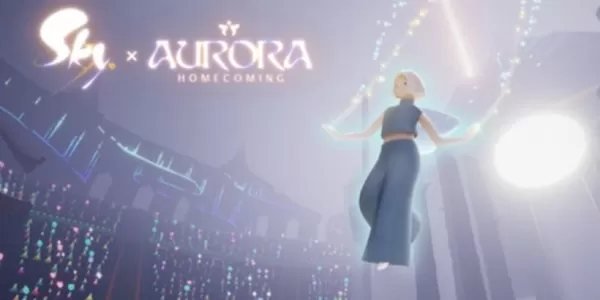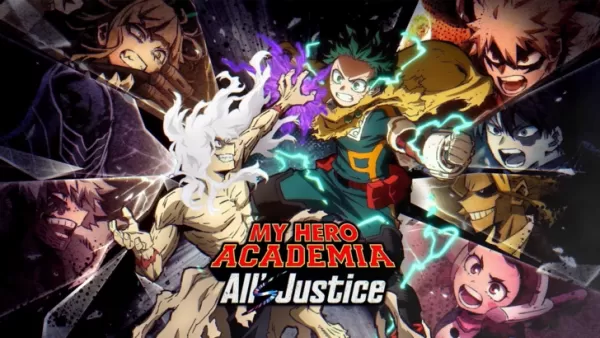by Lillian Jun 15,2025
Our final stop during the IGN First visit to FromSoftware was the sound room, where Lead Composer Shoi Miyazawa brings The Lands Between and Limveld to life with rich, emotional soundscapes filled with hope, melancholy, and intensity. In this interview, Miyazawa discusses the creative process behind FromSoft’s iconic soundtracks, the director's vision for *Elden Ring: Nightreign*, and his own musical influences that shape his work.
Shoi Miyazawa: I’ve always been drawn to video game music—especially titles like *Armored Core*, which played a big role in my decision to join FromSoftware. When Hoshino-san reached out about working here, I was thrilled. Other childhood favorites include *Ganbare Goemon*, *Secret of Mana*, and the *Castlevania* series, all of which continue to inspire me creatively.
I’ve always admired artists like King Crimson and Marilyn Manson. Their unique musical vibes definitely resonate with my personal style and approach to composition.
There are several ways we begin. Sometimes the director gives a brief description of the desired atmosphere or environment. Other times, we draw inspiration from concept art or even text-based descriptions detailing a boss’s backstory or arena setting.
Since it’s a spin-off, we wanted to maintain some core elements from *Elden Ring*, but also make sure *Nightreign* had its own identity. I worked closely with the director to ensure the tone was distinct while still fitting within the broader *Elden Ring* universe. The goal was to create something familiar yet fresh—something catchy and unique in its own right.
Certainly. Since night is a central theme, we focused heavily on creating a sense of loneliness, mystery, and unease associated with darkness. These emotions were key in shaping the overall soundscape of the DLC.
It’s hard to choose, but a few tracks stand out. One is “Consort Radahn” from *Elden Ring*. I composed that in a dimly lit room and remember feeling like someone was watching me from the shadows—something that definitely bled into the track's eerie atmosphere.
Another memorable piece is “Takes Me Anywhere” from the bonus soundtrack of *Armored Core VI*. It was inspired by my deep love for the *Armored Core* series, especially since it had been on hiatus when I joined FromSoftware. This track brought back many memories and represents ideas I had long wanted to explore musically.
Generally, each track is handled by one composer from start to finish. However, we often exchange ideas and offer feedback as a team. That said, *Nightreign* was a bit different—we occasionally had multiple composers contributing to a single track, making it a more collaborative effort than usual.
Libra was an unusual case because the character brief included very specific musical direction. We wanted to reflect the exotic, chaotic, and demonic nature of the boss while highlighting the duality between victory and defeat. The music aimed to heighten the tension and emotional stakes throughout the fight.
The day-night cycle and the three-day structure were crucial to *Nightreign*’s design. As night approaches, enemies become stronger and the danger intensifies. Our goal was to mirror that growing sense of dread through the music—making players feel increasingly vulnerable and outmatched.
We really pushed the boundaries with each boss theme in *Nightreign*, focusing on making each encounter feel unique. Some pieces went beyond what we’ve done before musically, and I’m eager for players to experience them firsthand.
I don’t have a favorite instrument per se—I started with computers and DAWs (Digital Audio Workstations), and that’s remained my foundation. Software allows me to deeply fine-tune every note and pitch, giving me full control over the details. I hope players can hear that level of care in the final product.
One that stands out to me is *Myst*. Its pre-rendered environments and puzzle-solving gameplay left a strong impression. Adventure games like that really shaped my early experiences as a player.
Girls Frontline 2: Exilium Global Website Goes Live, Along With Its Socials!
Marvel Rivals: Understanding Bussing and Catching It
New Game Plus in Assassin's Creed Shadows: Confirmed?
Top Skills to Prioritize for Yasuke in Assassin’s Creed Shadows
Assassin’s Creed Shadows Movements Reviewed by Two Parkour Athletes
Death Stranding 2 Release Date Unveiled in Massive Trailer
Pokemon GO Leak Teases New Adventure Effects
Amazon Music Unlimited: Free 3-Month Trial Available

Aurora Returns to Sky: Children of the Light
Dec 21,2025

Isekai Dispatcher Team Unveils Ash & Snow Match-Three Game
Dec 21,2025

Nintendo Denies Amazon Removal Over Sales Dispute
Dec 21,2025
Nintendo Switch Online Teases Smash Bros. for N64
Dec 21,2025

All's Justice in My Hero Academia: Release Date & Time
Dec 20,2025